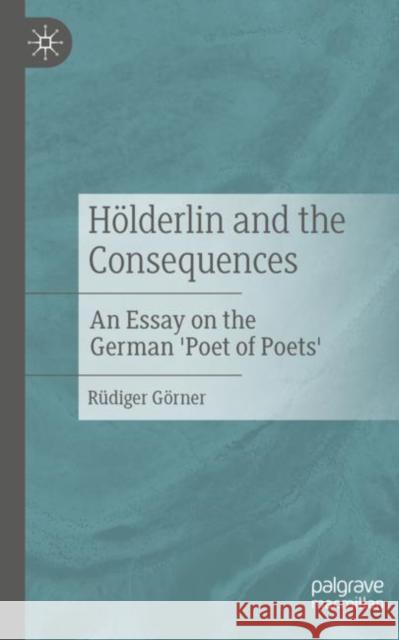Hölderlin and the Consequences: An Essay on the German 'Poet of Poets' » książka
topmenu
Hölderlin and the Consequences: An Essay on the German 'Poet of Poets'
ISBN-13: 9783476058201 / Angielski / Miękka / 2022
Hölderlin and the Consequences: An Essay on the German 'Poet of Poets'
ISBN-13: 9783476058201 / Angielski / Miękka / 2022
cena 153,30
(netto: 146,00 VAT: 5%)
Najniższa cena z 30 dni: 146,48
(netto: 146,00 VAT: 5%)
Najniższa cena z 30 dni: 146,48
Termin realizacji zamówienia:
ok. 22 dni roboczych
Bez gwarancji dostawy przed świętami
ok. 22 dni roboczych
Bez gwarancji dostawy przed świętami
Darmowa dostawa!
"A sign we are, uninterpreted. Painless we are and have almost / lost the language in a foreign country." Thus begins the second version of Friedrich Hölderlin's hymn dedicated to goddess of memory, Mnemosyne. "Hölderlin and the Consequences" wants to remember this 'poet of poets' and consider what his unmatched poems have stimulated, even triggered, in others. This scholarly essay examines the legacy of a poet who was, by and large, ostracized in his time, a master of language, who was declared a stranger by his contemporaries until he became a stranger to himself. Hölderlin's multiple experience of foreignness and alienation was later counteracted by often ideologically motivated attempts to appropriate him. Rüdiger Görner presents this complex context as a special case in recent literary history.
This book is a translation of an original German 1st edition, "Hölderlin und die Folgen" by Rüdiger Görner, published by J.B. Metzler, imprint of Springer-Verlag GmbH Germany, part of Springer Nature in 2016. The translation was done with the help of artificial intelligence (machine translation by the service DeepL.com). The author (with the support of Josh Torabi) has subsequently revised the text further in an endeavour to refine the work stylistically.











